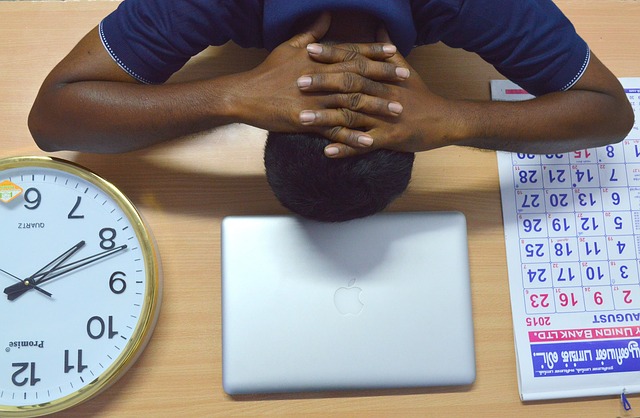In a previous post, we explored five strategies for handling stressful careers. In this post, we bring you even more strategies for dealing with stressful careers from our friends at Clicktime.
Clean up Your Desk or Workspace
Again, studies show that a cluttered desk helps raise work stress levels. Often when everything else feels unruly, taking 30 minutes to organize your workspace can bring a relieving feeling of calm.
Note: this same strategy applies to your apartment, your house, your car, your briefcase, or any other place you keep your stuff.
Show up Early
If you get stressed because you’re always running behind schedule, what can do the trick is coming to work 10 minutes early every day. Get some coffee, put your stuff away, and plan out your day. By the time “worktime” hits, you’re already rolling!
Listen to Music
William Congreve wrote that “Musick has Charms to sooth a savage Breast.” He’s right.
If you need a little de-stressing at work, throw on the headphones and dial up whatever tunes make you happy. Beyonce? Bach? 2-Pac? Doesn’t really matter — if you’re digging it, you’re feeling better.
Schedule in Breaks
It’s tempting to feel like the only way to manage a stressful workload is to power through it, non-stop. Turns out that’s actually counter-productive. It’s a fact: breaks let you get more done.
If you’re worried about all the work you have to do, set breaks for yourself. Work hard for 25 minutes, then walk around for 10. Work hard for another 25 minutes, then read something stupid online. Give yourself time to recharge; it’ll keep you from burning yourself out.
And when it is time to take a vacation, be sure to schedule time off and enjoy some much-needed R&R.
Eliminate Unnecessary Meetings
This falls more into “larger strategies” than “things to do right now.” That said, at plenty of workplaces, meetings pile on until there’s no time to simply sit down and work. That’s stressful.
No matter where you are on the totem pole, you’ll be helping everyone else on your team if you advocate for dropping unnecessary meetings. There’ll be fewer things to worry about, and you’ll free up more time for everybody.
Reward Yourself for Working
Sometimes the best cure for stress is to simply be nice to yourself. And what better reason is there to be nice to yourself than for having done some good work?
Along with breaks, small rewards can be a great way to keep yourself productive, while helping you tally the amount of work you’ve actually gotten done. So work hard for a while, then reward yourself by writing to a friend. Or having a small treat. Or leaving the office for 10 minutes. By holding those rewards back until you’ve earned them, you’ll be more motivated to work. But by giving them to yourself, you’ll tell yourself you deserve them.
Be Thankful
Silly as it might sound, cultivating a thankful attitude can reduce both general and work stress, and make you happier. As a general life practice, working to be more thankful is one of the best ways to keep you stress-free (or at least stress-reduced).
There are lots of ways to do this. Keep a gratitude journal. Force yourself to say “thank you” to three people a day. Spend 5 minutes every night going over what you’re thankful for.
Whichever of these you choose, keep doing it. In a short period of time, you’ll notice how much better you feel.
This post is an excerpt from an article that first appeared here and is reproduced with permission from Clicktime. For more, check out the full article here.





